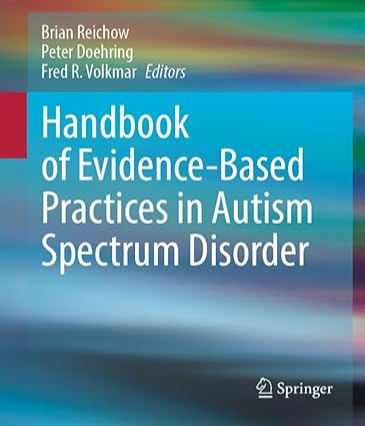KAN's new book on evidence-based practices can help drive effective new programs for adults like Margot
- pjdoehring
- Dec 28, 2024
- 3 min read
Updated: Jan 3, 2025
Lessons drawn from our updated and expanded review of evidence-based intervention practices can help people like Margot be happier and more successful. Behaviorally-based teaching techniques like Task Analysis are just one example.
Much of my career as a clinician, educator, and program leader centered on exploring how to implement evidence-based practices - e.g., those identified as effective through high-quality outcome research studies - for children with Autism Spectrum Disorder (ASD) in community settings like public schools. This resulted in a 400 page 2011 book published with my colleagues Fred Volkmar and Dominic Cicchetti from Yale, and Brian Reichow then at University of Florida. With sales of more than 80,000 (including the entire book or individual chapters), it is clear that the book filled an important gap in the literature. So we are excited that a significantly updated and expanded version of this book will be on shelves by February 2025 (see right) published by Springer Nature. Over the next couple of months, we will highlight some of the lessons drawn from this book that are applicable to building new skills for adults like Margot in programs like KAN.
One of these lessons is the need to pay more attention to focused practices than comprehensive programs. Examples of the latter (like Early Intensive Behavioral Intervention, Early Start Denver Program, Project SEARCH, and so on) can look promising to those starting from scratch, but the benefits are elusive. For example, comprehensive programs often only help a select subset of the population, and can be very costly to research and to implement effectively. Yet the effectiveness of most comprehensive programs often depends on sets of focused practices, each of which can be individually researched and applied much more flexibly, rapidly, and effectively to a broader range to individuals. While comprehensive programs can take years to fully implement, these focused practices can be quickly integrated into specific teaching goals and taught to direct support professionals.
I asked Lee Kern and her colleagues at Lehigh University to write a chapter reviewing one such set of focused practices from the behaviorally-based teaching strategies that have been widely researched: prompting, task analysis, and self-management. Each of these focused practices is evidence-based, can be learned quickly, and can be applied to a wide variety of skills. The first two are generally recognized as core practices for teaching even those individuals with the most significant levels of disability. You can see what these look like in our lesson for teaching Margot to wash her hands independently.

Consider Task Analysis, which breaks complex tasks down into individual steps that can be taught in stages and built up over time. As Kern noted, Task Analyses are tremendously versatile: they can be applied to anything from washing your hands to playing basketball! Task analyses make it more likely that teaching will be consistent across different people, helping people like Margot learn more quickly. Task analyses are especially helpful for precisely identifying the steps that a person finds most difficult, so that you can focus your efforts on making specific adjustments. For example, we observed that Margot struggled to get both hands in the right place to pump hand soap, and the resulting frustration sometimes made it harder for her to complete the task without additional help, so we swapped our hand pump for an automatic one.





Comments